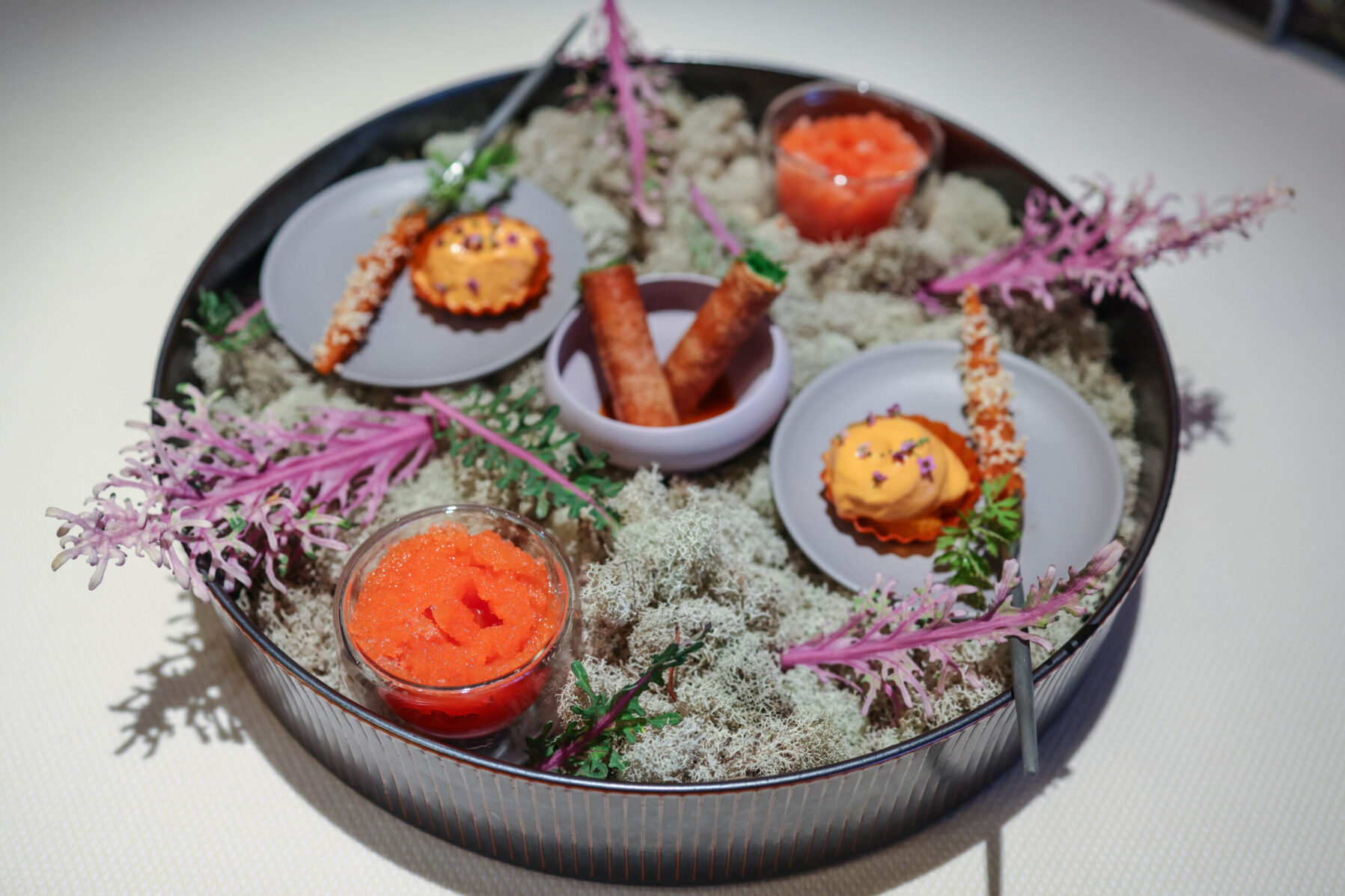On a recent misty morning in Point Reyes, then inland for a Petaluma afternoon, I visited two of our most beloved creameries. The damp earth of a dairy farm in dark, early hours is oddly intoxicating, while sampling fresh cheese in various stages of ripening is sheer pleasure. These dairies make me proud of the familial, forward-thinking, humane food practices that have been going strong in the Bay Area for decades from pioneers such as these.
Straus Family Creamery
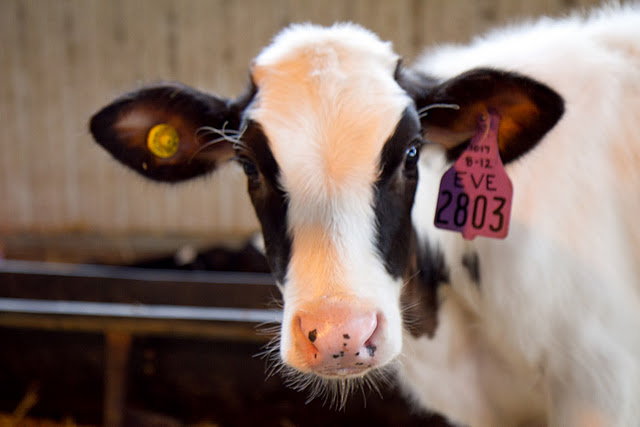
Sweet baby cow Eve
One look in the eyes of cows at Straus Family Creamery and you’re changed. If you did not care care where your milk came from, you do now. Petting baby cows, tagged with names such as Wilma or Eve (above), you become attached, even protective, of these peaceable animals. It inspires hope to see cows treated as well as they are here, a rarity in the mainstream dairy market.
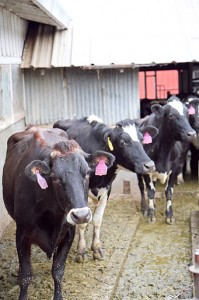
Cows ready to be milked in the early morning hours
Organic before it became a “trend”, Bill Straus began farming this coastal Point Reyes land in 1941 with 23 cows (there’s now over 300 milk cows). His wife Ellen read Rachel Carson’s game-changing Silent Spring in the ’60’s, mobilizing them both in lifelong commitment to environmental sustainability. They were the first certified organic dairy farm west of the Mississippi in 1994, leading in sustainable farming practices.
Early on a soft, grey weekday, I trekked up to the farm via scenic winding roads, not unlike those of the Scottish Highlands I’d just returned from a day before. Directly on Tomales Bay, the farm rolls down to the shore, often foggy in the mornings, with sun peeking through by afternoon. The air smells funky with cows, yes, but also bracingly of earth, water, grass.
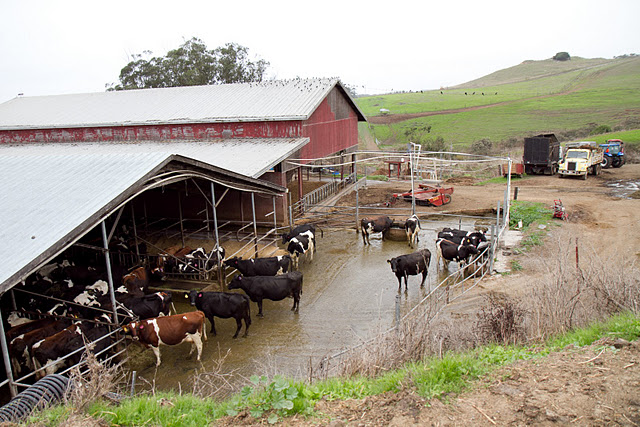
Hanging with the cows on the Straus Farm
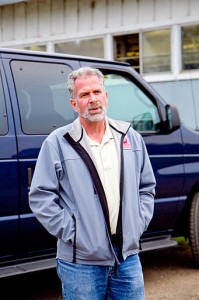
Albert Straus shows us around the farm
Bill and Ellen’s son Albert Straus now runs the farm. Majoring in dairy science, he launched their ice cream line (he’s a real aficionado), continuing to grow Straus Creamery in sustainable practices like composting solids and waste to fertilize their land (or that of nearby biodynamic wineries).
Straus keeps a “closed herd” so no infection/disease gets transported to the cows. While he works with 300 milking cows, he’s simultaneously raising 250 young cows who begin milking after two years.
There’s not a lot of profit to be made allowing the natural process vs. increasing milk flow by injecting cows with hormones. It is heartening to see those like Straus, who care more about the quality and health of the product for consumers, along with the animals and their land, than the bottom line. But this level of care costs.
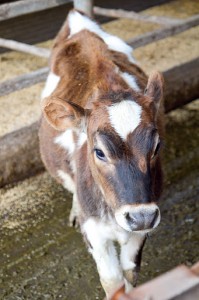
Precious baby cows
As prices of basics like grain and production have gone up at least 25% in the last couple of years alone, there’s now even less to gain by doing it “right.” But Straus presses on, under standards for organic farm certification that are stricter than for any food product. Straus is pleased to note that organic farms in Marin and Sonoma now make up around 50% of those counties’ farms, indicating the area as an industry leader (learn more about the organization formed in part by Albert and Sue Conley of Cowgirl Creamery, Marin Organic, now celebrating 10 years and responsible for promoting much of the region and industry’s growth).
With a mission to maintain and preserve family farms, Albert is willing to take risks and try new approaches: “Most farmers are pretty risk averse, but I seem to continue to go the other way,” he laughs. Coming from a family line of risk-takers in dairy farming, we all gratefully reap the benefits.
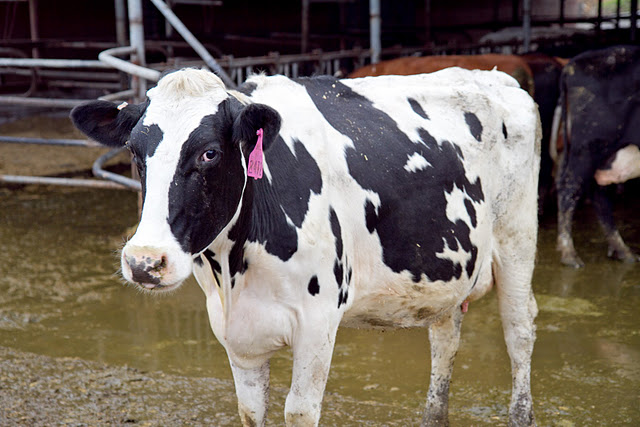
Greetings from the Straus herd
Cowgirl Creamery
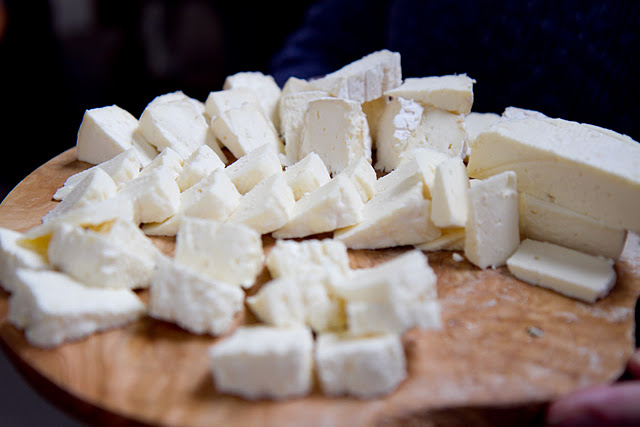
Fresh Mt. Tam cheeses in various stages of age from hours old to 32 days
A day spent with Cowgirl Creamery founders, Sue Conley and Peggy Smith, among the finest cheesemakers in the country, is a delight. With close ties to the Straus family (they not only source milk from Straus, but Sue was in part inspired to launch Cowgirl by her relationship with the Strauses).
Both from rich culinary backgrounds, Peg and Sue created highly-lauded cheeses like that triple-cream dream, Mt. Tam, and earthy, unique Red Hawk. Their shop in SF’s Ferry Building is a cheese destination, with production now mainly in a larger creamery in Petaluma (a town boasting other major creameries like Clover and Cowgirl’s building neighbor, Three Twins).
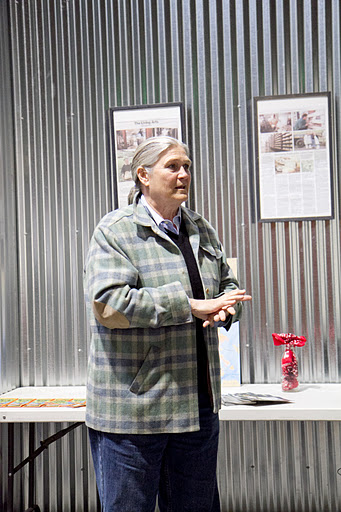
Peggy Smith leads us through the Petaluma facility
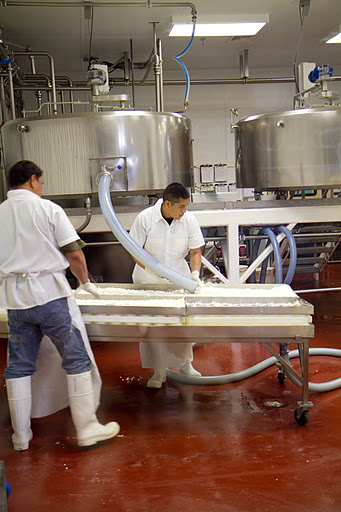
“Washing the curd” by hand from the pasteurizer before brining
They produce ten different cheeses, seven in Petaluma, and three in their original (smaller) Point Reyes facility.
Peg notes that in Europe keeping cheeses regionally uniform (like Camembert in Camembert, France, for example) means strict style regulations. “We are lucky to have such great variety of cheeses here,” she says, claiming freedom of experimentation led to some of their most popular cheeses.
Besides an idyllic lunch at Sue’s house, the day’s high point came in sampling Mt. Tam in numerous states of age, from hours’ old, just-brined, tasting salty-sour-tart, to a meaty, acidic phase at seven days, finishing with a creamy, nutty thirty-two day Mt. Tam (it is usually sold in the mid 20-30 day ranges).
Schedule a tour of Cowgirl (tours resume in the Spring) or Straus farm (group tours only), and you may come away as I did, with an increased appreciation for cheese, cows, our diverse region, and the artisans who strive to create the best… and change the world while they’re at it.
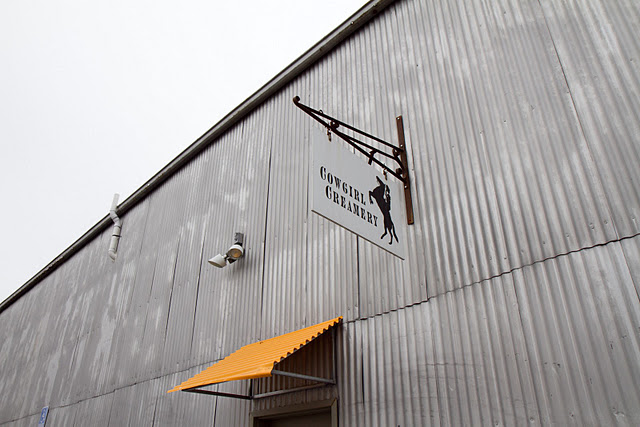
Cowgirl Creamery warehouse in Petaluma
